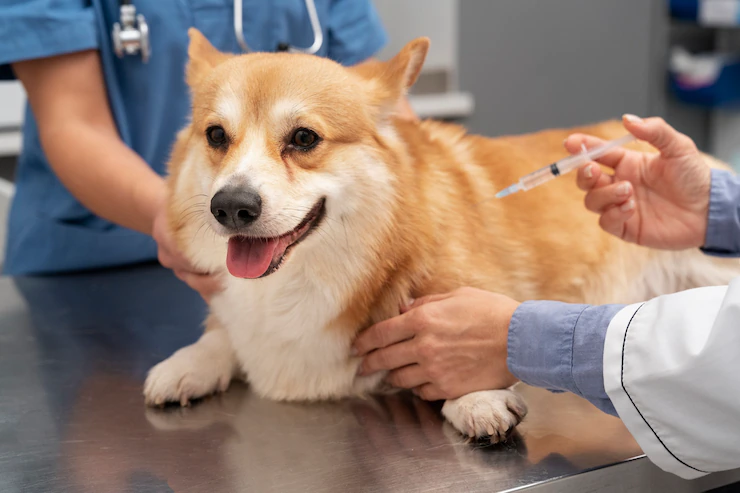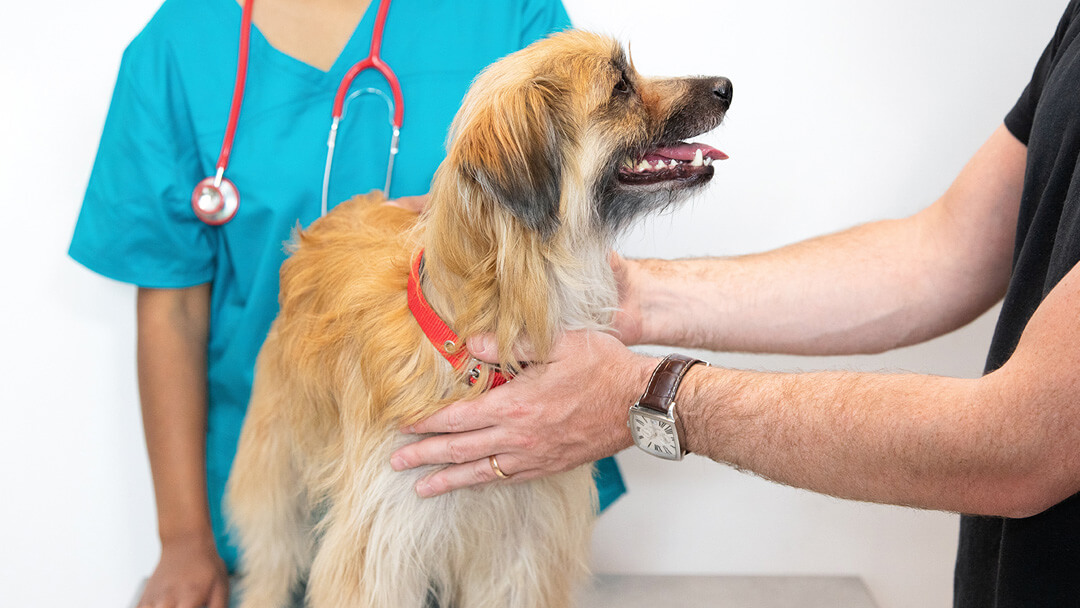Keeping our dogs healthy requires not only love and care but also a strong focus on disease prevention and knowing how to treat illnesses when they arise. Dogs, like humans, are susceptible to a range of diseases, from infectious viruses to parasitic infections and chronic conditions. By being proactive about disease prevention and understanding available treatments, you can help your dog live a long, healthy life. This article will focus on practical ways to prevent common dog diseases and effective treatments to manage them.
Preventing Dog Diseases: The First Line of Defense
Prevention is always better than cure, especially when it comes to keeping your dog safe from diseases. The most important preventive measure any dog owner can take is vaccination. Vaccines protect dogs from serious and often fatal diseases such as rabies, canine distemper, and parvovirus. Puppies should begin their vaccination schedule as early as six to eight weeks of age, with booster shots given at regular intervals. For adult dogs, annual vaccinations or boosters are needed to maintain immunity. Vaccination is especially crucial for diseases like rabies, which are transmissible to humans and have no cure once symptoms develop.

Another essential aspect of disease prevention is parasite control. Dogs are frequently exposed to parasites such as fleas, ticks, and heartworms, which can lead to serious health complications if left untreated. Fleas can cause allergic reactions and skin infections, while ticks are responsible for transmitting Lyme disease and other dangerous infections. Heartworm disease, transmitted by mosquitoes, is one of the most serious parasitic diseases, affecting the heart and lungs. Preventative treatments such as monthly oral or topical medications are highly effective in protecting dogs from these parasites. Flea and tick preventatives can come in various forms, including collars, shampoos, and spot-on treatments. It’s important to apply these treatments consistently, as many parasites can remain active year-round, especially in warmer climates.
In addition to parasite control, regular veterinary check-ups are crucial in the early detection of potential health issues. Annual vet visits allow for comprehensive health assessments, including routine blood tests and screenings for parasites like heartworms. These exams can identify early signs of diseases before they become severe, allowing for timely intervention. A vet can also help ensure that your dog’s vaccination schedule is up-to-date and recommend any necessary booster shots based on your dog’s lifestyle and environment.

A healthy diet and maintaining a proper weight are equally vital for disease prevention. Obesity is one of the most common health issues in dogs and can lead to a range of diseases, including diabetes, joint problems, and heart disease. Feeding your dog a well-balanced diet with the appropriate amount of nutrients helps maintain a healthy immune system, preventing conditions associated with poor nutrition. Regular exercise, portion control, and avoiding high-calorie treats can also keep your dog fit and reduce the risk of obesity-related diseases.
Effective Treatment for Dog Diseases
Even with the best prevention measures, it’s possible for your dog to fall ill. Understanding the available treatment options can make a significant difference in your dog’s recovery. For most diseases, early detection is the key to effective treatment.
Infectious diseases, such as parvovirus and distemper, require immediate veterinary attention. Parvovirus, which primarily affects puppies, leads to severe dehydration and damage to the gastrointestinal tract. Treatment typically involves hospitalization, IV fluids, and medications to control vomiting and diarrhea. There is no specific antiviral cure for parvovirus, so supportive care is crucial for recovery. Canine distemper, another viral disease, affects the respiratory, digestive, and nervous systems. Like parvo, treatment for distemper is supportive, including fluids, antibiotics for secondary infections, and medications to control symptoms. The best defense against these diseases is prevention through vaccination, but if your dog does contract these illnesses, prompt veterinary care increases their chances of survival.
For parasitic infections such as heartworm, the treatment process is often lengthy and involves multiple steps. Heartworm treatment begins with medications to kill the adult worms and larvae in the dog’s bloodstream. Dogs undergoing heartworm treatment must be kept calm and restricted from strenuous activities, as the dying worms can cause blockages in the lungs and blood vessels, leading to serious complications. After treatment, regular heartworm preventatives are essential to avoid reinfection.

Tick-borne diseases, such as Lyme disease, are usually treated with antibiotics, particularly doxycycline, to eliminate the infection. Treatment is most effective when Lyme disease is caught early, which is why regular tick prevention and checking your dog for ticks after outdoor activities are so important. In addition to antibiotics, dogs with Lyme disease may need anti-inflammatory medications to relieve joint pain and stiffness caused by the infection.
Flea allergy dermatitis, which is an allergic reaction to flea bites, requires both treatment of the allergic reaction and elimination of the fleas. Anti-inflammatory medications and antihistamines can be prescribed by a vet to reduce itching and skin inflammation. Simultaneously, aggressive flea control through topical treatments, flea shampoos, and cleaning your dog’s environment is necessary to prevent further bites.
Chronic diseases like diabetes or arthritis require long-term management rather than a cure. In the case of canine diabetes, dogs need daily insulin injections to regulate their blood sugar levels. Along with insulin therapy, managing a diabetic dog’s diet is critical, with a focus on high-fiber, low-fat foods that help maintain stable blood sugar levels. Regular vet check-ups are essential to monitor the dog’s response to insulin and make adjustments as necessary.
For dogs suffering from arthritis or joint-related diseases such as hip dysplasia, treatment focuses on pain management and improving mobility. Nonsteroidal anti-inflammatory drugs (NSAIDs) are commonly prescribed to reduce pain and inflammation in dogs with arthritis. Additionally, physical therapy, weight management, and supplements like glucosamine can help maintain joint health and improve the dog’s quality of life. In severe cases, surgery may be required to correct joint problems, especially in dogs with advanced hip dysplasia.
Home Care and Long-Term Management
After treatment, home care plays an integral role in your dog’s recovery and long-term health. Proper hydration, rest, and nutrition are key to helping your dog heal after an illness. If your dog is recovering from an infection like parvo or distemper, it is essential to provide a quiet, stress-free environment where they can rest. For chronic conditions like diabetes or arthritis, following the vet’s instructions for administering medication is crucial. It may take some time to get used to giving insulin injections or pain-relief medications, but consistency is vital in managing these diseases.
Regular monitoring of your dog’s condition at home, especially for chronic illnesses, allows you to catch any changes early. If you notice your dog’s symptoms worsening or new symptoms developing, contacting your vet promptly can prevent complications. Follow-up veterinary visits are often required to ensure that your dog is responding well to treatment and to make any necessary adjustments to their care plan.

Preventing and treating dog diseases is a shared responsibility between you and your veterinarian. By staying up-to-date on vaccinations, maintaining a parasite prevention routine, feeding a balanced diet, and scheduling regular vet check-ups, you can significantly reduce the likelihood of your dog contracting common diseases. If your dog does fall ill, understanding the appropriate treatments and following through with home care can help them recover quickly and comfortably. Ultimately, being proactive about your dog’s health is the best way to ensure a long and happy life for your beloved pet.

After 5 years in a high pace business management role, I partnered with an e-commerce developer to start building Dog Supplies Warehouse.
Our number one goal is to make sure all products are managed and delivered to our customers door fast and accurately.
